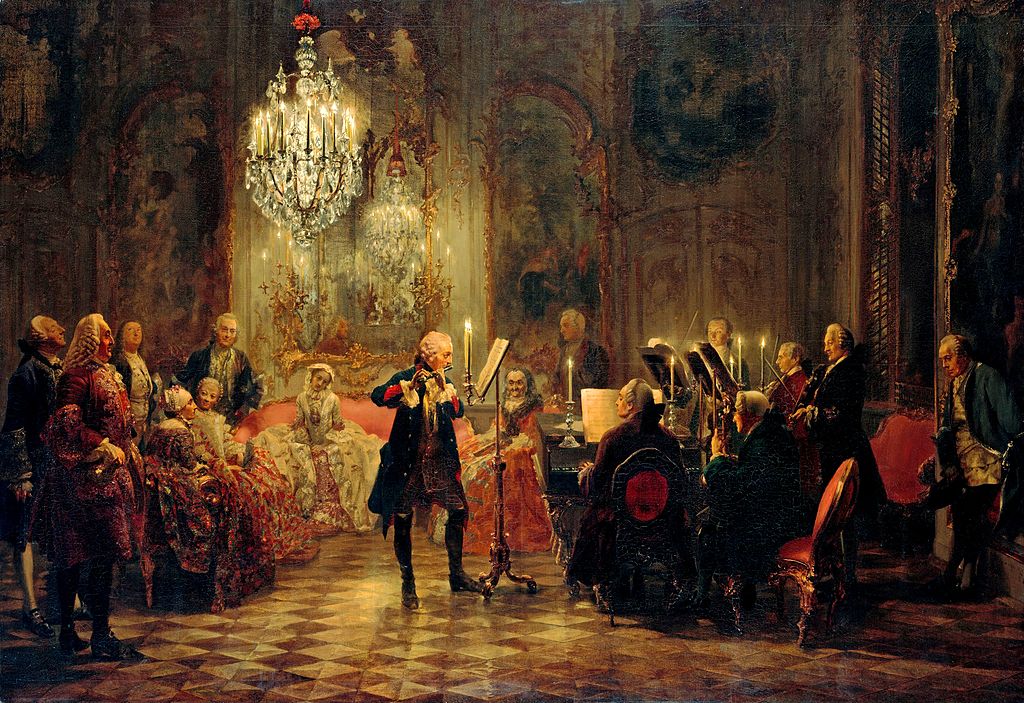C.P.E. Bach, Cello Concerto in A minor, Wq. 170
Carl Philipp Emanuel Bach was born in our adopted home town of Weimar in 1714. Professor Carol frequently speaks about Weimar as the Cultural Capital of Germany, and we recommend it as a base for anyone wanting to explore German history.
Carl received his musical training from his father J.S. Bach. He finished his university studies with a degree in law but never practiced. (What is it with mixing law and music?) Instead he found himself employed by Frederick the Great. The famous painting below by Adolph von Menzel shows C.P.E. at the harpsichord accompanying Frederick on the flute.

C.P.E. Bach produced three cello concertos, all prominent works in the cello repertoire. The cello had been associated with the basso continuo (accompaniment) in Baroque works and had not generally been viewed as a solo instrument or one to be featured in a concerto. Other versions of these concertos feature the flute and the harpsichord as alternative solo instruments.
C.P.E. is known in particular for championing the Empfindsamkeit (sensitive) style with sudden changes of mood, rhythm, and dynamics. This stood in stark contrast to the steady mood and tempo of each movement of a Baroque work. The sudden shifts have caused some to describe his music as volatile.
Much like his father, C.P.E. would spend his last two decades in a sacred music post, as music director for the five major churches in Hamburg. He took over that post when it was left vacant by the death of his godfather, Georg Philipp Telemann.



